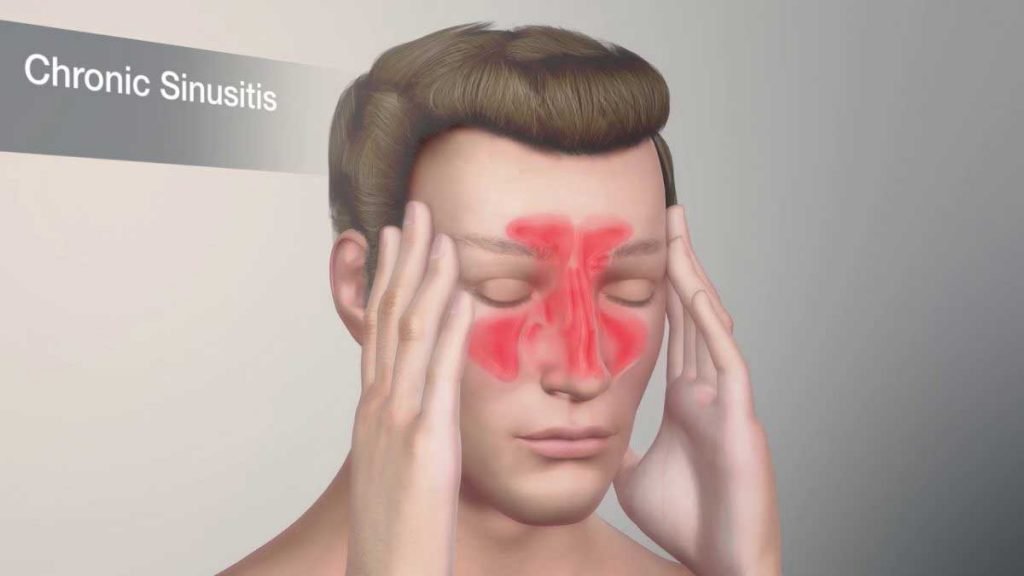Whenever cold weather strikes or the wind sends allergens into the air, you can bet on one thing: the possibility of a cold or sinus infection striking at an inopportune moment. Nothing is more annoying than dealing with the discomfort associated with a sinus infection. Sinus infections have many causes — even a cold can cause one. When your sinuses fill with fluid or become inflamed, you may have a sinus infection.
Sometimes, allergies can mimic the symptoms of a sinus infection as well. Whatever the case, you should know a few critical details about sinus infections to help you recover from them in the best way you can. Here’s a guide to recognizing and dealing with a sinus infection.
Types of Sinus Issues
The sinuses are an essential part of our anatomy with equally vital functions (there are actually four of them). All of that becomes impaired when a sinus infection strikes. Sinus infections are troublesome and inconvenient at any time. They can come on at almost any time and are usually caused by fluid build-up in your sinus cavities.
That fluid harbors bacterial growth or the introduction of viruses to your sinuses. Then it’s only a matter of time before you have a full blown sinus infection. A sinus infection can be classified by how long it lasts. Chronic
Sinusitis takes things up a notch and can last more than three months. Sometimes a previous cold/allergies or even a unique bone structure in your face can end up causing a sinus infection.
Symptoms
If you think you have a sinus infection, there are a few symptoms to be on the lookout for as you assess the situation. Here are some things to monitor and watch for:
- Runny nose
- Stuffy nose
- Pain in your face
- Facial pressure
- Headache
- Excessive mucus
- Postnasal drip
- Sore throat
- Coughing
- Bad breath
- Swelling
- Discolored mucus
- Feeling nasal stiffness
- Discharge resembling pus (common in bacterial infections)
If you’re feeling one or more of these particular symptoms, then it’s a good idea to consult the doctor – why not consider doing it online via telemedicine/telehealth – to see if you have a sinus infection and what type of treatments you should begin doing to mitigate the problem.
Contagiousness
One of the burning questions on your mind is whether or not sinus infections are contagious. Well, the short answer is that they are. They can actually be quite contagious. Why? Because most of them are caused by viruses and, well, viruses easily spread and replicate. Some infections are bacterial in nature and, therefore, are not contagious.
To learn more about sinus infections, whether or not they’re contagious, how contagious they are, and basically anything else you might want to know about them, check out Everyday Dr.’s comprehensive resources on the subject here: https://everydaydoctor.com/sinus/are-sinus-infections-contagious.
Treatment
If your doctor diagnoses you with a sinus infection, there’s a good possibility they’ll prescribe some medication. Nasal irrigation using a Neti pot or similar method is one home remedy that tends to help. Over the counter sinus and congestion relief is also typically advised by doctors for this issue. Resting, drinking plenty of fluids, adding a humidifier to your room, and other basic precautions can also help. For really bad sinus infections, a doctor might prescribe a steroid nasal spray or antibiotics for bacterial sinus infections. Decongestants, pain relievers, and cough medicines are all useful for treating sinus infection and if the infection persists longer than three months, consult a doctor immediately.
Prevention

While treating a sinus infection takes time, rest, and some medicine on occasion, there may be some ways to prevent them. Simple things like frequently washing your hands and practicing good hygiene are excellent preventative methods. Some doctors suggest regularly irrigating your sinuses.
Maintaining a healthy lifestyle is also key to preventing most illnesses – including sinus infections. Of course, there are other methods you can use and you should consult with your doctor for any ideas/suggestions. Unfortunately, no prevention methods are foolproof, but this should at least generate some ideas of how to guard against potential sinus infections as we rapidly head into colder weather this year.

